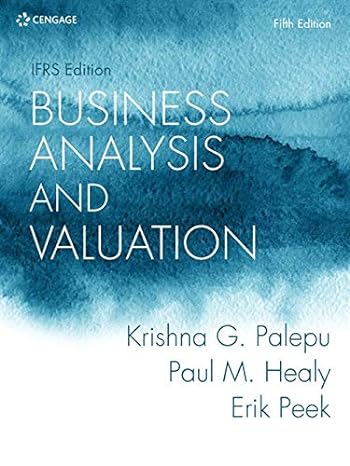Consider the following companies. Juventus F.C. S.p.A. is an Italian publicly listed football club. The clubs primary
Question:
Consider the following companies.
Juventus F.C. S.p.A. is an Italian publicly listed football club. The club’s primary sources of revenue are:
a Season and single ticket sales.
b Television, radio, and media rights.
c Sponsorship and advertising contracts.
d The disposal of players’ registration rights.
Players’ registration rights are recognized on the balance sheet at cost and amortized over the players’ contract terms. The club owns its stadium
(“Juventus Stadium”), which opened in 2011, but leases the land adjacent to its stadium from the City of Turin under an operating lease arrangement.
The operating lease has a term of 99 years and involves a lease payment, made in advance, of close to €13 million.
To help finance the €105 million construction cost of the stadium, Juventus entered into an agreement with a large sports marketing agency, selling the exclusive naming rights for the new stadium for a period of 12 years. In exchange for the naming rights, Juventus received an advance payment of €38.5 million.
Spyker Cars N.V. is a small Netherlands-based designer and manufacturer of exclusive sports cars, which had its initial public offering in 2004 but delisted from the Amsterdam Stock Exchange in 2013.
During the first five years as a publicly listed company, Spyker’s annual revenues went down from a maximum of €19.7 million (in 2006) to €6.6 million (in 2009). In these years, Spyker produced 242 new cars (including demonstration cars) and sold 194 cars. At the end of 2009, it held 28 cars in stock. Further, in 2009 the company spent close to €9.8 million on development, which it added to its development asset of €27.3 million, and €14,000 on research. Because Spyker had been loss-making since its IPO, the car manufacturer had €97 million in tax-deductible carry forward losses at the end of 2009.
J Sainsbury plc is a UK-based publicly listed retailer that operates more than 2,200 supermarkets and convenience stores and has an estimated 16 percent market share in the United Kingdom. During the period 2010–2014 the company’s operating profit margin averaged around 3.6 percent; during the period 2015–2017 the operating profit margin averaged around 1.5 percent, reaching a level of 1.6 percent in the year ending on March 10, 2018 (fiscal 2017). In March 2018 the net book value of Sainsbury’s land and buildings was £7.9 billion. A significant part of the company’s supermarket properties was pledged as security for long-term borrowings. In 2018 Sainsbury had 187 thousand employees (121 thousand full-time equivalents); many of them participated in one of the retailer’s defined-benefit pension plans. At the presentation of the fiscal 2017 results, Sainsbury announced that it had agreed to acquire supermarket chain Asda for an amount of £7.3 billion in cash and shares.
1 Identify the key accounting policies for each of these companies.
2 What are these companies’ primary areas of accounting flexibility? (Focus on the key accounting policies.)
Step by Step Answer:

Business Analysis And Valuation
ISBN: 978-1473758421
5th Edition
Authors: Erik Peek, Paul Healy, Krishna Palepu





